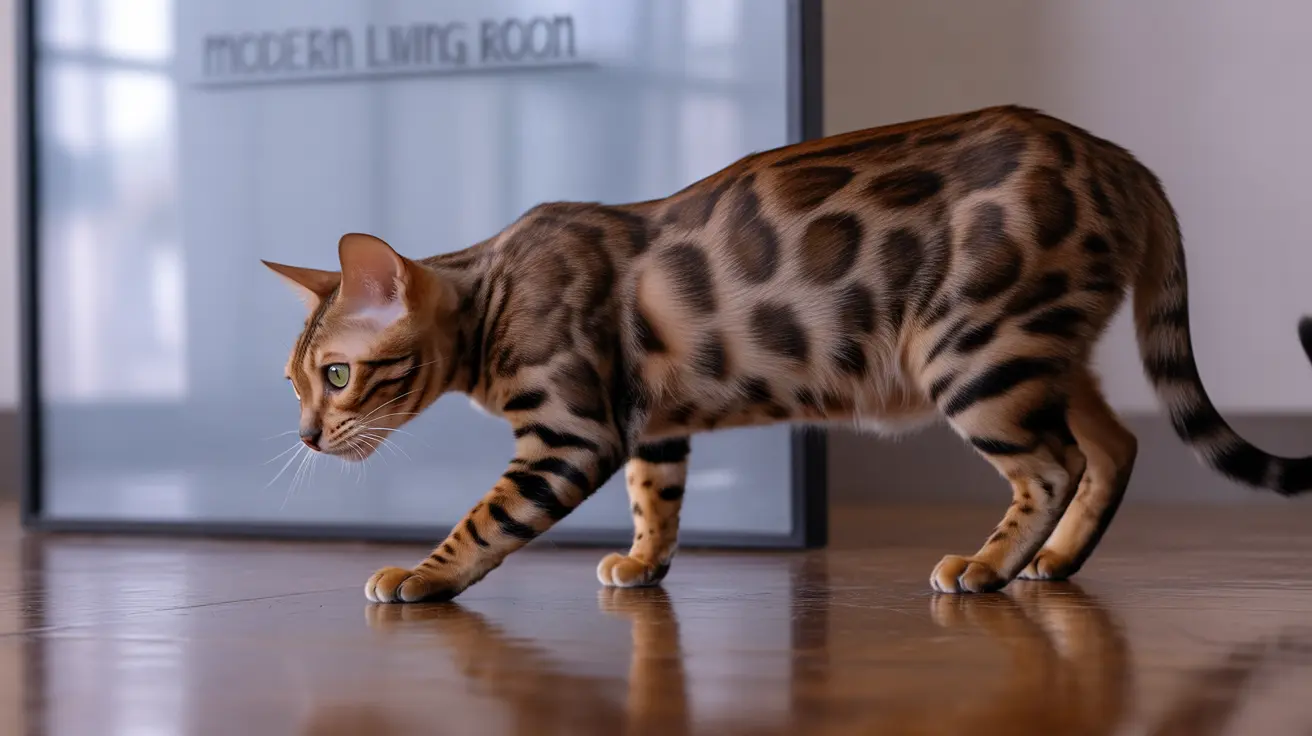Discovering your cat is peeing on the floor instead of using their litter box can be both frustrating and concerning. This behavior isn't just a nuisance - it's often a cry for help that signals underlying health issues, environmental stressors, or litter box problems that need attention.
In this comprehensive guide, we'll explore the various reasons behind this common feline behavior issue and provide actionable solutions to help restore proper litter box habits.
Medical Causes That Lead to Floor Urination
Before addressing behavioral issues, it's crucial to rule out medical conditions that could be causing your cat to urinate outside the litter box.
Urinary Tract Issues
Urinary tract infections (UTIs), bladder inflammation, and crystalluria can cause painful urination, leading cats to associate the litter box with discomfort. These conditions often result in frequent urination, straining, or blood in the urine.
Chronic Health Conditions
Diabetes and kidney disease can increase thirst and urination frequency, making it difficult for cats to reach the litter box in time. Senior cats with arthritis may struggle to access traditional litter boxes, resulting in accidents on the floor.
Litter Box Problems and Solutions
Location and Accessibility
Your cat's litter box should be easily accessible and placed in a quiet, private area. Avoid placing boxes near noisy appliances or high-traffic areas that might startle your cat during use.
Proper Setup and Maintenance
- Provide one litter box per cat, plus an extra
- Clean boxes daily and replace litter weekly
- Use unscented, clumping litter most cats prefer
- Ensure boxes are large enough for comfortable movement
Environmental Stress and Anxiety
Cats are sensitive to changes in their environment, and stress can trigger inappropriate urination. Common stressors include:
- Moving to a new home
- Introduction of new pets
- Changes in household routine
- Nearby outdoor cats
- Home renovations or furniture changes
Effective Cleaning and Prevention
Proper cleaning is crucial to prevent repeat incidents:
Cleaning Protocol
- Use enzymatic cleaners specifically designed for pet urine
- Avoid ammonia-based products that may attract cats back to the spot
- Clean affected areas thoroughly to eliminate all trace odors
- Consider using UV light to detect hidden urine spots
Frequently Asked Questions
Why is my cat peeing on the floor instead of the litter box?
Your cat may be urinating on the floor due to medical issues, litter box aversion, stress, or environmental changes. A veterinary check-up is recommended to rule out health problems before addressing behavioral causes.
Could a urinary tract infection cause my cat to pee outside the litter box?
Yes, UTIs and other urinary tract issues are common causes of inappropriate urination. These conditions can make urination painful, causing cats to avoid the litter box.
How can I make my cat's litter box more appealing to prevent accidents?
Keep the box clean, use preferred litter types, ensure proper box size and placement, and maintain multiple boxes in multi-cat households. Remove covers if your cat seems hesitant to use covered boxes.
Can stress or changes in the home environment lead to my cat peeing outside the litter box?
Yes, cats are sensitive to environmental changes and may express stress through inappropriate urination. Maintaining routine and providing safe spaces can help reduce stress-related accidents.
What are the best ways to clean cat urine spots to stop repeat accidents on the floor?
Use enzymatic cleaners specifically designed for pet urine, clean thoroughly, and avoid ammonia-based products. Complete odor elimination is crucial to prevent cats from returning to the same spot.
Conclusion
When your cat is peeing on the floor, it's essential to approach the problem with patience and understanding. Start with a veterinary examination to rule out medical issues, then systematically address potential environmental and behavioral causes. With proper attention to both physical and emotional needs, most cats can return to consistent litter box use.






